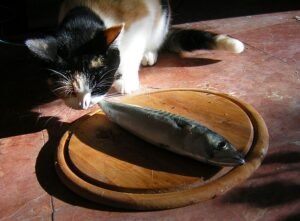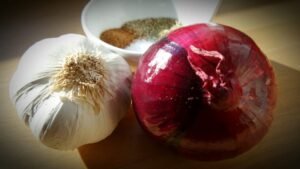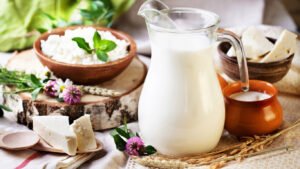Dangerous foods Cat should never Eat: 10 Toxic Foods
A cat’s digestive system is different from a human’s. Many of the foods consumed by humans can cause severe health problems for cats. As a pet owner, it is essential to know about foods that can cause problems for your feline partner. CatsandWoofs is here to discuss foods cat should not eat. So do not skip.
- Fat Trimmings and Bones: Can cause digestive upset, choking, or intestinal blockages.

- Raw Fish, Meat, and Eggs: Can contain harmful bacteria and enzymes that destroy thiamine, leading to neurological issues. Raw eggs can lead to biotin deficiency and carry the risk of Salmonella infection.
- Alcohol: Can cause serious liver and brain damage, even in small amounts.

- Caffeine: Found in coffee, tea, and many soft drinks, it can be fatal in large quantities.
- Tuna (in large quantities): While small amounts are usually safe, too much can lead to mercury poisoning and nutritional deficiencies.
- Grapes and Raisins: Can cause kidney failure in cats.

- Onions and Garlic: These can cause gastrointestinal upset and damage to red blood cells, leading to anemia.
- Salt and Seasoning: Excessive salt can lead to sodium ion poisoning, resulting in vomiting, diarrhea, depression, tremors, elevated body temperature, and seizures.

- Dairy Products: Many cats are lactose intolerant and can develop digestive upset by eating milk, cheese, yogurt, and other dairy products.
- Citrus Fruits: Lemons, limes, oranges, and other citrus fruits can cause vomiting, diarrhea, and central nervous system depression.
If cats ingest any of these foods by accident and exhibit abnormal behavior, allergies, or any other concerning symptoms, seek veterinary attention immediately. Early intervention can prevent serious health complications and ensure your cat receives the appropriate care they need. Remember, being aware of what your cat eats is crucial for their well-being and longevity.

